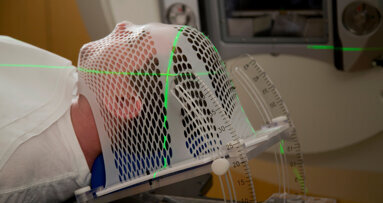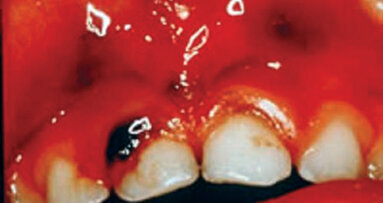LEIPZIG, Germany: A new anti-leukaemia compound, currently being studied at the Albert Einstein College of Medicine of Yeshiva University in New York City in the US, has revealed promising results for treating head and neck cancer. According to a press note released by the university last week, the new class of chemotherapy agents, known as histone deacetylase inhibitors (HDAC), succeeded in killing tumour cells that had been removed from head and neck cancer patients and grown in the laboratory.
Head and neck cancer refers to tumours originating from the upper aerodigestive tract, including the lips, oral and nasal cavity, as well as paranasal sinuses, pharynx, and larynx. It is the sixth most frequent cancer worldwide, comprising almost 50 per cent of all malignancies in some developing nations, such as India. In the US alone, approximately 30,000 new cases and 8,000 deaths are reported each year.
Until now, the common form of treatment has been radiation therapy, and in some cases also surgery or targeted therapy, which uses drugs or other substances to identify and attack specific cancer cells without harming normal cells. HDAC inhibitors, such as LBH589 tested at Einstein, appear to combat cancer by restoring the expression of key regulatory genes that control cell growth and survival to normal levels.
In addition, the researchers identified a set of genes whose expression levels change in response to the HDAC inhibitors, which could help doctors identify the patients most likely to respond to the drug. Plans call for testing LBH589 on head and neck tumour cells from more patients, so that the set of genes that respond to the drug can be more firmly established.
“We are performing studies in mice to confirm these laboratory results, which hopefully will progress to human clinical trials of LBH589 for the treatment of head and neck cancer,” said Prof. Michael Prystowsky, Professor and Chair of Pathology at Einstein.
PHILADELPHIA, PA, USA/LEIPZIG, Germany: New findings by researchers from the United States have shown that chronic periodontitis might represent a clinical ...
WESTCHESTER, IL, USA: According to new research that received the Graduate Student Research Award at the 19th Annual Meeting of the American Academy of ...
BUFFALO, N.Y., USA: Human Papilloma Virus (HPV), once almost exclusively associated with cancer of the cervix, is now linked to head and neck cancer. ...
CHAPEL HILL, N.C., US: Head and neck squamous cell carcinoma (HNSCC) is a global health concern, ranking as the sixth most common malignancy worldwide. Poor...
Timothy Caruso is a physical therapist with over 30 years of experience, specialising in manual therapy, orthopaedics and ergonomics. In this interview ...
As drug use and abuse has risen throughout the United States, dental professionals find themselves faced with increasing requests to assist in the response ...
Leukemia took his health, made him deaf and ravaged his teeth, but Andre Fredricks has a new smile, thanks to San Antonio cosmetic dentist Dr. John Moore, ...
DALLAS, US: Hot on the heels of a successful spring edition in Arizona, DentalForum USA is gearing up for its autumn event, set to take place on 15–17 ...
An abnormal immune response or “feedback loop” could very well be the underlying cause of metastases in oral cancers, according to Dr. Marco ...
At the end of the 19th century, when researchers developed the first X-ray machine, they knew it posed potential danger. Due to leakage from X-ray tubes, ...
Live webinar
Fri. 13 February 2026
12:00 PM EST (New York)
Live webinar
Mon. 16 February 2026
12:00 PM EST (New York)
Live webinar
Tue. 17 February 2026
12:00 PM EST (New York)
Live webinar
Wed. 18 February 2026
9:00 AM EST (New York)
Dr. Anna Lella, Ms. Francesca Nava
Live webinar
Wed. 18 February 2026
12:00 PM EST (New York)
Prof. Dr. João Caramês CODE expert, Dr. Robert Gottlander DDS
Live webinar
Mon. 23 February 2026
3:00 AM EST (New York)
Ass. Prof. Elizabeth Shick, Dr. Zehra Yonel
Live webinar
Tue. 24 February 2026
1:00 PM EST (New York)
Prof. Dr. Markus B. Hürzeler



 Austria / Österreich
Austria / Österreich
 Bosnia and Herzegovina / Босна и Херцеговина
Bosnia and Herzegovina / Босна и Херцеговина
 Bulgaria / България
Bulgaria / България
 Croatia / Hrvatska
Croatia / Hrvatska
 Czech Republic & Slovakia / Česká republika & Slovensko
Czech Republic & Slovakia / Česká republika & Slovensko
 France / France
France / France
 Germany / Deutschland
Germany / Deutschland
 Greece / ΕΛΛΑΔΑ
Greece / ΕΛΛΑΔΑ
 Hungary / Hungary
Hungary / Hungary
 Italy / Italia
Italy / Italia
 Netherlands / Nederland
Netherlands / Nederland
 Nordic / Nordic
Nordic / Nordic
 Poland / Polska
Poland / Polska
 Portugal / Portugal
Portugal / Portugal
 Romania & Moldova / România & Moldova
Romania & Moldova / România & Moldova
 Slovenia / Slovenija
Slovenia / Slovenija
 Serbia & Montenegro / Србија и Црна Гора
Serbia & Montenegro / Србија и Црна Гора
 Spain / España
Spain / España
 Switzerland / Schweiz
Switzerland / Schweiz
 Turkey / Türkiye
Turkey / Türkiye
 UK & Ireland / UK & Ireland
UK & Ireland / UK & Ireland
 International / International
International / International
 Brazil / Brasil
Brazil / Brasil
 Canada / Canada
Canada / Canada
 Latin America / Latinoamérica
Latin America / Latinoamérica
 China / 中国
China / 中国
 India / भारत गणराज्य
India / भारत गणराज्य
 Pakistan / Pākistān
Pakistan / Pākistān
 Vietnam / Việt Nam
Vietnam / Việt Nam
 ASEAN / ASEAN
ASEAN / ASEAN
 Israel / מְדִינַת יִשְׂרָאֵל
Israel / מְדִינַת יִשְׂרָאֵל
 Algeria, Morocco & Tunisia / الجزائر والمغرب وتونس
Algeria, Morocco & Tunisia / الجزائر والمغرب وتونس
 Middle East / Middle East
Middle East / Middle East



























































To post a reply please login or register